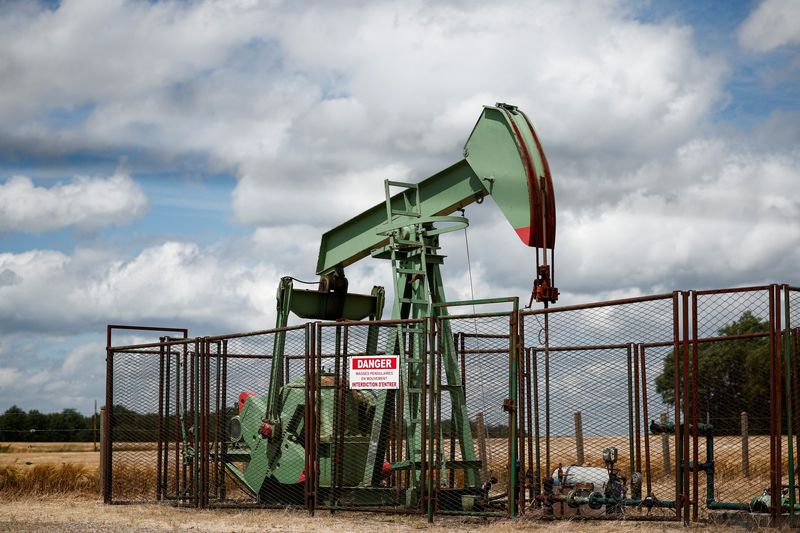Oil prices fall by more than $1 on deflation worries in China
By Colleen Howe
BEIJING (Reuters) -Oil prices fell by more than $1 a barrel, losing over 1.5% in early trading on Monday, after disappointing Chinese inflation data and a lack of clarity on Beijing's economic stimulus plans stoked fears about demand.
Brent crude futures were down $1.26, or 1.59%, at $77.78 per barrel by 0020 GMT, and U.S. West Texas Intermediate crude futures fell $1.20, or 1.59%, to $74.36 per barrel.
The negative news from China outweighed market concerns over the lingering possibility an Israeli response to Iran's Oct. 1 missile attack could disrupt oil production, though the U.S. has cautioned Israel against targeting Iranian energy infrastructure.
China's deflationary pressures worsened in September, according to official data released on Saturday, and a press conference the same day left investors guessing about the overall size of a stimulus package to revive the sputtering economy.
The consumer price index rose 0.4%, the data showed, missing expectations, and the producer price index fell at the fastest pace in six months, down 2.8% year-on-year, according to the National Bureau of Statistics.
"Saturday's briefing by the China Ministry of Finance has turned out to be a flop. The fiscal measures needed to remove downside risks to growth and ignite the animal spirits within Chinese consumers (are) conspicuous in their absence," IG market analyst Tony Sycamore said in a note.
Beijing said on Saturday it would ramp up debt issuance but failed to give a dollar figure.
Both oil benchmarks had settled up 1% on the week on Friday as investors weighed possible supply disruptions in the Middle East and Hurricane Milton's impact on fuel demand in Florida.
The U.S. on Friday expanded sanctions against Iran in response to its Oct. 1 attack on Israel, targeting its "ghost fleet" that ferries illicit oil supplies across the globe.
In the U.S. market, energy firms last week added oil and natural gas rigs for the first time in four weeks, according to a closely followed report by energy services firm Baker Hughes.
The oil and gas rig count, an early indicator of future output, rose by one to 586 in the week to Oct. 11.
The impact of Hurricane Milton boosted short-term demand in the U.S. as evacuations supported gasoline consumption, but weak demand dominated the fundamentals outlook.
Oil major BP (NYSE:BP ) posted a $600 million drop in its third-quarter profit on Friday because of weak refining margins amid a slowdown in global oil use.
Source: Investing.com
